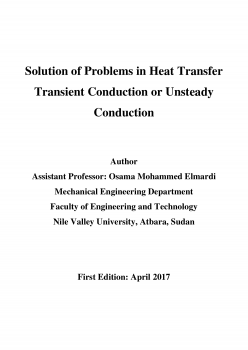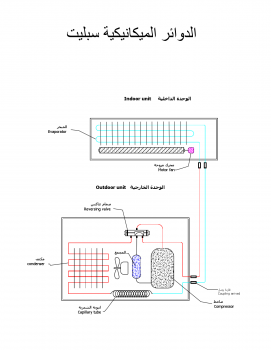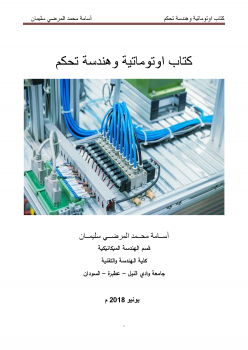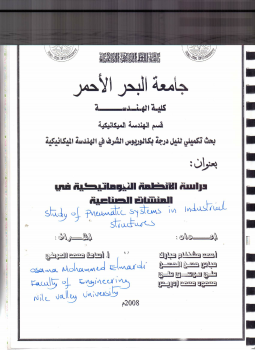
Solution of Problems in Heat Transfer Transient Conduction or Unsteady Conduction
During my long experience in teaching several engineering subjects I noticed that many students find it difficult to learn from classical textbooks which are written as theoretical literature They tend to read them as one might read a novel and fail to appreciate what is being set out in each section The result is that the student ends his reading with a glorious feeling of knowing it all and with in fact no understanding of the subject whatsoever To avoid this undesirable end a modern presentation has been adopted for this book The subject has been presented in the form of solution of comprehensive examples in a step by step form The example itself should contain three major parts the first part is concerned with the definition of terms the second part deals with a systematic derivation of equations to terminate the problem to its final stage the third part is pertinent to the ability and skill in solving problems in a logical manner
This book aims to give students of engineering a thorough grounding in the subject of heat transfer The book is comprehensive in its coverage without sacrificing the necessary theoretical details
The book is designed as a complete course test in heat transfer for degree courses in mechanical and production engineering and combined studies courses in which heat transfer and related topics are an important part of the curriculum Students on technician diploma and certificate courses in engineering will also find the book suitable although the content is deeper than they might require
The entire book has been thoroughly revised and a large number of solved examples and additional unsolved problems have been added This book contains comprehensive treatment of the subject matter in simple and direct language
The book comprises eight chapters All chapters are saturated with much needed text supported and by simple and self explanatory examples
Chapter one includes general introduction to transient conduction or unsteady conduction definition of its fundamental terms derivation of equations and a wide spectrum of solved examples
In chapter two the time constant and the response of temperature measuring devices were introduced and discussed thoroughly This chapter was supported by different solved examples
Chapter three discusses the importance of transient heat conduction in solids with finite conduction and convective resistances At the end of this chapter a wide range of solved examples were added These examples were solved using Heisler charts
In chapter four transient heat conduction in semi – infinite solids were introduced and explained through the solution of different examples using Gaussian error function in the form of tables and graphs
Chapter five deals with the periodic variation of surface temperature where the periodic type of heat flow was explained in a neat and regular manner At the end of this chapter a wide range of solved examples was introduced
Chapter six concerns with temperature distribution in transient conduction In using such distribution the one dimensional transient heat conduction problems could be solved easily as explained in examples
In chapter seven additional examples in lumped capacitance system or negligible internal resistance theory were solved in a systematic manner so as to enable the students to understand and digest the subject properly
Chapter eight which is the last chapter of this book contains unsolved theoretical questions and further problems in lumped capacitance system How these problems are solved will depend on the full understanding of the previous chapters and the facilities available e g computer calculator etc In engineering success depends on the reliability of the results achieved not on the method of achieving them
I would like to express my appreciation of the assistance which I have received from my colleagues in the teaching profession I am particularly indebted to Professor Mahmoud Yassin Osman for his advice on the preparation of this textbook
When author printer and publisher have all done their best some errors may still remain For these I apologies and I will be glad to receive any correction or constructive criticism
br Assistant Professor Osama Mohammed Elmardi Suleiman
Mechanical Engineering Department
Faculty of Engineering and Technology
Nile Valley University Atbara Sudan
February 2017
br




